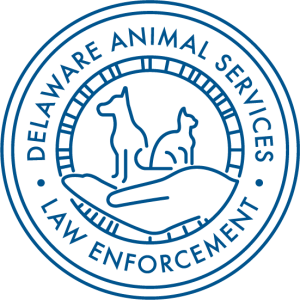On Tuesday, January 23, 2024, the Office of Animal Welfare (OAW) was recognized by the 152nd General Assembly, with House Concurrent Resolution 81 sponsored by Rep. Kimberly Williams, (D-19), and Sen. Jack Walsh, (D-9).
November 2023 marked 10 years since the OAW was established under the Delaware Division of Public Health (DPH). The OAW is a state office dedicated to protecting the health, safety and welfare of companion animals, and promoting the human-animal bond.
“For 10 years now, the Office of Animal Welfare has worked to improve the quality of life for pets and people across our state and their efforts deserve recognition,” said Rep. Kim Williams. “Through their collaboration with local animal shelters, rescues, and the veterinary community, they have not only made Delaware a more humane and compassionate place, but have also played a pivotal role in making our state the first no-kill animal shelter state. As we celebrate their remarkable 10 years of service, let us also embrace the important message of ‘adopt, don’t shop’ when looking for a new four-legged friend.”
In 2012, a State Animal Welfare Taskforce of policymakers, veterinarians, shelter directors and others with expertise in animal welfare was assembled to analyze issues concerning companion animals and to make recommendations for improvement. The 147th Delaware General Assembly established the OAW from the recommendations of this taskforce in late 2013, as it was clear there was a need for a state office dedicated to addressing these issues. Today, the public has one centralized office to manage and coordinate programs and services for pets, which greatly reduces the confusion for residents and fragmentation of services that existed previously.
“Over the last decade, the Office of Animal Welfare has played a vital role in promoting safer and healthier communities by carrying out their mission to protect the welfare of the dogs, cats and other furry companions that are a part of so many of our families,” said Sen. Jack Walsh, the Senate prime sponsor of HCR 81. “I am proud to recognize the OAW’s tireless dedication, and even prouder of the work that OAW and the General Assembly have done, and will continue to do, to protect the welfare of animals throughout Delaware.”
In recent years, the office has created many programs and resources to promote the safety and wellbeing of Delawareans and their companion animals. Among these accomplishments are:
- Launching a statewide Lost and Found Pet Registry.
- Implementing training and certification regulations for animal welfare officers that ensures preparedness and consistency statewide.
- Establishing Delaware Animal Services (DAS) which is the Office’s enforcement unit to safeguard pets and the public.
- Drafting enforcement provisions for the Shelter Standards Law.
- Implementing a comprehensive shelter oversight program which conducts regular inspections of Delaware’s animal shelters.
- Expansion of the State Spay & Neuter Program to reduce animal homelessness.
“Celebrating 10 years of the Office of Animal Welfare is a significant milestone that is a testament to the dedication and hard work of our staff and community partners, as well as the support of the public,” said OAW Director Christina Motoyoshi. “This tribute provides an opportunity to recognize those that worked to create the Office and reflect on the impact made as a result to reduce animal homelessness and suffering, elevate professionalism and make our community safer for people and pets. We look forward to continued progress and serving as a vital resource for Delawareans for years to come.”
For more information about OAW, visit https://dhss.delaware.gov/dhss/dph/oaw/oawhome.html. To report animal cruelty or a dog control issue, call 302-255-4646.
